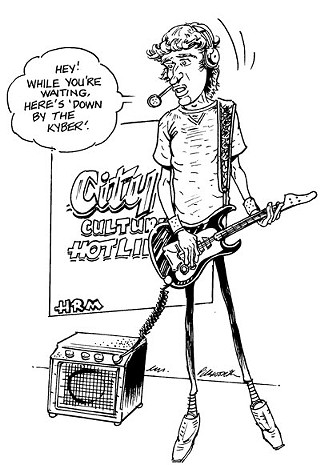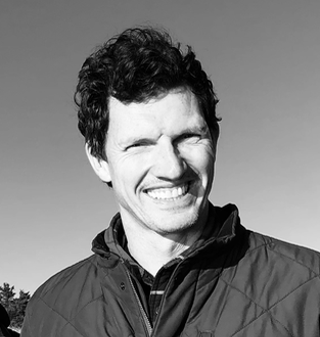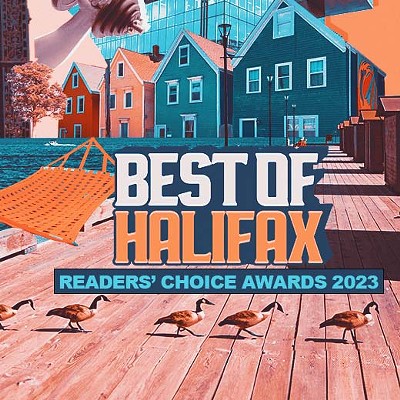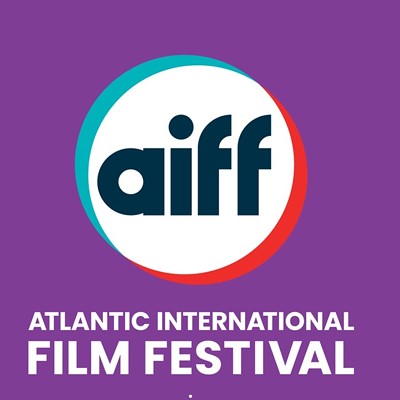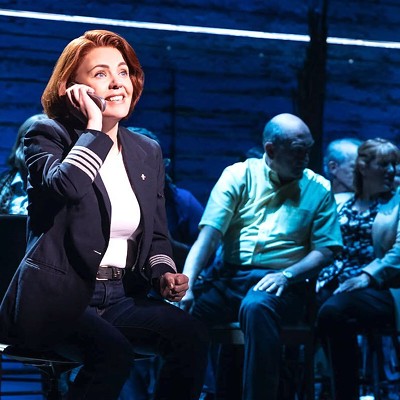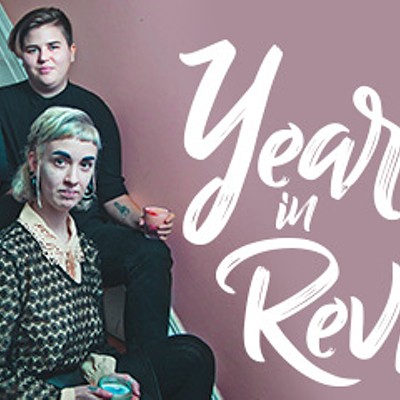There’s a scene from a classic civilization where the emperor Nero plays his fiddle, while around him a fire is destroying Rome. Although the veracity of the story is debatable—if nothing else, his instrument must have been a lyre—the image of a politician indifferent to major problems has earned a place in our vocabulary. Over the last year, Halifax’s cultural fabric has suffered the loss of the Bloomfield Centre and the Khyber Club, and city hall did the modern equivalent of fiddling through the crisis: It worked on a Cultural Plan.
Started in February 2005, the latest draft of the Cultural Plan is scheduled to appear before city council this Tuesday, February 28. Councillor Sue Uteck chaired the Cultural Advisory Committee that wrote the plan, and she is confident council will accept this version as its guiding document for the next 10 years. Uteck sees the city changing thanks to the plan, to the point where citizens of 2016 will see more public art, can live in communities that are “creative clusters” and have more festivals and events to enjoy.
All of which sounds wonderful, and it’s hard to fault Uteck’s optimism or intentions. But what use is policy 4.7 (“HRM recognizes the importance of artists to the cultural identity and economic vitality of the region and will work to develop the necessary conditions and incentives for their production”) to the artists who were locked out of the Bloomfield’s Commons Building in the summer? Put another way, if the plan passes on Tuesday, will everybody at city hall appreciate culture’s inherent value on Wednesday?
At the root of culture is creation: painting a picture, building a community, cooking a traditional meal. And the Cultural Plan does suggest a few things you would recognize as encouraging creation, such as putting an arts or cultural display area into all city buildings, and “erecting world class monuments at key locations” across the municipality. It also proposes that a cultural component be added to council meetings, fuelling hopes for Len Goucher’s interpretive dance version of the report from the Dangerous and Unsightly Premises Committee.
In the bulk of its recommendations, however, the Cultural Plan is far, far more interested in a kind of creation foreign to regular life. It wants to create bureaucracy.
Selected bits of advice from the plan: establish a cross departmental cultural committee, an intergovernmental cultural planning committee, a cultural tourism marketing committee and a creative community task force. Develop a cultural facilities master plan, a cultural communications strategy and a creative community strategy. Consider a tripartite foundation, regular surveys, local cultural plans and feasibility studies.
The plan’s focus is hardly surprising, as it is both product and tool of an administration that is bureaucratic in the extreme. But somewhere on the road to growing up as a cultural capital—or really, any sort of capital—we have to stop pretending that a smokescreen of busywork counts as action.
The city is awash in plans, studies and strategies that the Cultural Plan will have to mesh with, including the Regional Plan, the Economic Development Strategy, the Regional Heritage Strategy and an Urban Design Plan. Watching that bureaucratic jousting could be entertaining, if there was no other work to do.
Alas, the same day council deals with the Cultural Plan, it considers the United Gulf towers. These are the two, twisting, 27-storey buildings proposed for Granville and Hollis Streets downtown, in what is otherwise a budding heritage district. They violate the Municipal Planning Strategy (which helps protect the view of the harbour from Citadel Hill), the city’s Heritage Advisory Committee advises against them and, for what it’s worth, the Cultural Plan puts a high value on heritage.
The city’s planning department, however, has approved the development. And failing a Study Study, to figure out which goals and policies actually matter, we lumber forward with the next official step. Luckily that’s a public hearing, a chance to put your foot down. If you want to go, plan to be at city hall Tuesday at 6pm.
Implement accountability electrokeyboardically: [email protected]

